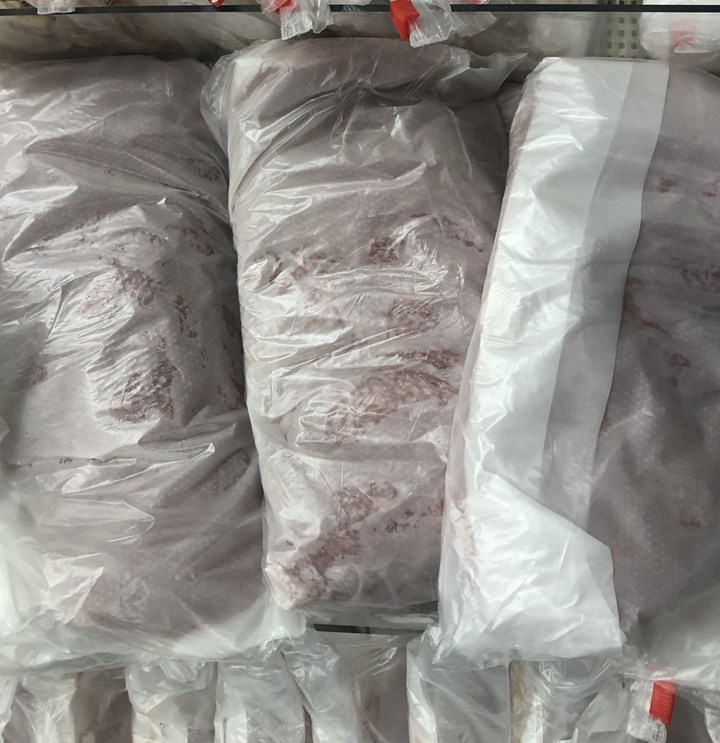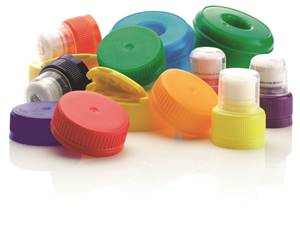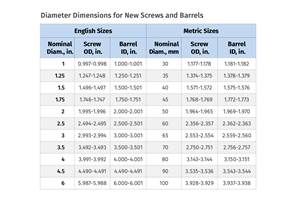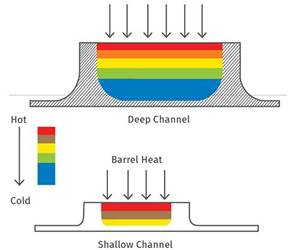PE Film Market Snapshot 2020: Deli Bags and Wrap
With an average annual growth rate of 7.9%, PE resin consumption in this market is anticipated to reach 25.2 million lb in this market by 2022.
This is the eighth in a series of blogs based on 2019-2020 research conducted by market-research firm Mastio & Co., St. Joseph, Mo. on key markets for processors of polyethylene film. There will be 10 articles in all. The first five offered Mastio’s analysis—based on interviews with processors conducted direct by the Missouri firm—with film processors representing the five largest PE film markets: stretch film, consumer/institutional product liners, T-shirt bags, institutional can liners and consumer trash bags.
The second batch of five will be focused on the five fastest-growing PE film markets. We’ve already hit on the bubble-wrap market and converter film. Here we hone in on deli bags and wrap.
Deli bags and wrap are used to protect and transport fresh deli products. On a national level, the deli industry is growing. Deli departments are vital to retailers, proving to be a high sales center. Many stores are looking into improving the quality of deli operations in order to increase profits.
Deli bags provide a means of transporting and storing freshly cut deli products. Deli bags are usually manufactured in two styles: fold-over and recloseable. For many years this market relied on paper overwrap to transport and store deli products, then plastic fold-over deli bags were developed. Now many companies are utilizing recloseable deli bags. Recloseable bags are currently the popular style, and this bag style is expected to grow in popularity in the future.
Deli wrap, often referred to as “interfolded sheets,” is typically sold as dispensable “pop-up” sheets in boxes. The sheets operate both as holders and as an overwrap for sliced deli products. Individual slices of meat are usually placed on a sheet after slicing and during weighing. After this is accomplished, the sheets are wrapped around the product and then placed inside a deli bag.
The Numbers
Producers of deli bags and wrap consumed approximately 20 million of PE resin for this market in 2019. With an average annual growth rate of 7.9%, PE resin consumption is anticipated to reach 25.2 million lb in this market by 2022.
Deli bags range in size from 5.75 in. × 6.75 in. to 10 in. × by 15.0 in. Traditionally, fold-over deli bag styles have a 1.5-in. flip-top. Fold-over deli bags typically come packaged 2000 per case, with a case weighing approximately 18 lb. Recloseable deli bags are usually sold 1000 per case, with a case weighing 11 to 14 lb., and film roll widths ranging from 8 in.- to- 72-in. wide. Although a minimum thickness for deli bags can be as low as 0.3 mils, 0.8 mil to 3 mils is the most typical range.
The Players
In North America, Mastio & Company profiled four companies that manufacture PE deli bags and wrap during 2019. The top two film processors in the deli bags and wrap market are: Winpak Ltd. and Arsenal Capital Partners (Revolution Company Div./Pak-Sher Packaging Co. Div.). Combined, these two companies produced approximately 11.3 million lb (56.5% of the market) of deli bags and wrap film in 2019.
The Resins
LLDPE manufactured with the metallocene single-site catalyst process (mLLDPE) and LDPE-homopolymer resins are the preferred materials utilized for deli bags and wrap. They are used either alone or in blends with LLDPE-butene resins, high density PE (HDPE) resins, and medium density PE (MDPE) resins. Companies in this market utilize mLLDPE resin because it provides added strength, flexibility and sealability.
Film producers in the deli bags and wrap market also utilize LLDPE-butene. LLDPE resin is used to produce deli bags and wrap because it offers great downgauging capabilities and is stronger than LDPE films in thinner gauges.
HMW-HDPE is still used in this market because it provides a better balance of properties, which include grease resistance, less permeation, strength, moisture barrier, faster line speeds, source reduction capabilities, and reduced film gauge.
Processing Trends
During 2019, all of the resin consumed for the deli bags and wrap market was manufactured with the blown film extrusion process. Both multi-layer coextruded and monolayer film constructions were utilized in the production of PE deli bags and wrap in 2019; some 47% of the market consists of multi-layer extrusion, according to Mastio.
The Future
All participants in the deli bags and wrap market are actively working on increasing sustainability within their companies and educating their employees to become more aware of the importance of minimizing the negative impacts on the environment. Winpak Ltd. is an active member of the Sustainable Packaging Coalition (SPC) and participates in SPC’s Multi-Material Flexible Recovery Committee. Winpak is working to advance recycling of multi-layer flexible packaging materials by supporting efforts toward the collection and recycling of post-consumer waste. Winpak is continuing to evaluate bio-based thermoplastics as well.
During 2019, a few deli bag and wrap manufacturers claimed that the sustainable conversation had shifted dramatically towards recyclability. That is positive in the ambition to strive to be good stewards. However, according to Mastio, the rabid desire for recyclability is driving the entire industry towards greenwashing. Virtually every company is claiming recyclability for flexible PE films. The films are recyclable in a theoretical sense, but there is essentially no infrastructure to render these films recyclable in the real world.
Additionally, there are only a handful of material recycling facilities (MRFs) in the country that can actually handle flexible films. Due to this, Mastio says there is a concern that the whole industry will have egg on its face if the momentum continues. Some companies are hopeful that this turns into a reverse, “build it and they will come,” moment. Ultimately, this will spur the recycling industry to make some strides.

Deli bags and wrap producers consumed approximately 20 million of PE in 2019. Thanks to an average annual growth rate of 7.9%, PE resin consumption for the deli products is anticipated to reach 25.2 million lb by 2022.
Related Content
How to Estimate and Control Head Pressure
You rightfully worry about melt temperature, but don’t overlook head pressure, because the two are closely linked and will influence line performance.
Read MoreUnderstanding the ‘Science’ of Color
And as with all sciences, there are fundamentals that must be considered to do color right. Here’s a helpful start.
Read MoreTroubleshooting Screw and Barrel Wear in Extrusion
Extruder screws and barrels will wear over time. If you are seeing a reduction in specific rate and higher discharge temperatures, wear is the likely culprit.
Read MoreThe Importance of Barrel Heat and Melt Temperature
Barrel temperature may impact melting in the case of very small extruders running very slowly. Otherwise, melting is mainly the result of shear heating of the polymer.
Read MoreRead Next
Advanced Recycling: Beyond Pyrolysis
Consumer-product brand owners increasingly see advanced chemical recycling as a necessary complement to mechanical recycling if they are to meet ambitious goals for a circular economy in the next decade. Dozens of technology providers are developing new technologies to overcome the limitations of existing pyrolysis methods and to commercialize various alternative approaches to chemical recycling of plastics.
Read MoreLead the Conversation, Change the Conversation
Coverage of single-use plastics can be both misleading and demoralizing. Here are 10 tips for changing the perception of the plastics industry at your company and in your community.
Read More
























